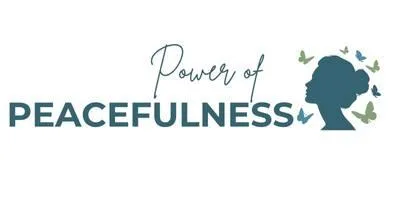
Unnoticed: A Journey of Professional Self-Worth
"Expectations are premeditated resentments." Those words echoed in my mind as I sat across from my boss, fighting back tears that threatened to expose years of accumulated frustration.
As a law professor, I'd built my reputation on professional composure. But today, that carefully constructed facade was crumbling. "I don't feel valued enough," I admitted, my voice barely a whisper. "I put in extra hours. I mentor people. I'm always available when someone needs help. But it feels like nobody really appreciates it."
My story isn't unique. Perhaps you're that colleague who always stays late to help others meet deadlines. Maybe you're the team member who takes on extra projects without being asked. Or the person who remembers everyone's birthdays and organizes office celebrations. You give and give, hoping your dedication will somehow translate into the recognition and respect you crave.
My boss listened quietly, his expression thoughtful. Then he shared two insights that would fundamentally reshape my understanding of professional relationships.
"First," he said, leaning forward, "mastery in any field takes time. But here's what most people miss—it's not just about mastering your technical skills. It's about mastering your relationship with the work itself."
His words hung in the air, challenging my entire approach to professional success. How much of my frustration stemmed from the actual work versus my expectations of how others should respond to my efforts?
"Second," he continued, "when we tie our confidence to others' reactions, we're building our professional house on shifting sand."
That observation hit me like a thunderbolt. I realized I'd created an elaborate mental scorecard: Each extra hour should equal a certain amount of appreciation; each additional task should translate to a specific level of respect. When reality didn't match these expectations, my confidence crumbled.
It's a trap many professionals fall into. We believe that if we just work hard enough, stay late enough, and help enough people, recognition will naturally follow. When it doesn't, we feel betrayed, undervalued, and begin to question our worth.
A few months earlier, I'd noticed a dangerous pattern. I was staying three hours late every day, answering work messages at midnight, and constantly taking on others' responsibilities. At first, I told myself I was just being dedicated. But then I started asking myself three crucial questions:
1. Was this a pattern of working hard without recognition, or was I overextending myself to seek validation?
2. Were my extra efforts occasionally acknowledged, even if not always?
3. Did I feel safe expressing concerns about my workload and boundaries?
The answers were revelatory. I needed to work on my relationship with external validation while also setting clearer boundaries about my time and energy.
That evening, I started a different kind of work journal. Instead of tracking others' reactions, I wrote down what I felt genuinely proud of: explaining a complex concept clearly, helping someone understand a difficult topic, making progress on a challenging project. I also noted when my boundaries were crossed and when my additional effort went beyond reasonable expectations.
This dual awareness—of both internal validation and external respect—changed everything.
I learned to appreciate my own efforts while also advocating for myself when necessary. I started leaving work at a reasonable hour, saving extra hours for truly important projects. Setting boundaries surprisingly earned me more respect, not less.
My journey taught me five critical lessons:
1. Question your expectations. Distinguish between needing constant praise and deserving basic respect.
2. Look for impact, not appreciation. Notice the small, meaningful moments you might overlook.
3. Build internal metrics. Define success on your own terms.
4. Set healthy boundaries. Your dedication shouldn't compromise your well-being.
5. Recognize the difference between seeking validation and being genuinely undervalued.
Now, when I catch myself slipping into old patterns, I pause and ask two questions: "Am I doing this because it matters to me, or for recognition?" And equally important: "Is this a reasonable expectation of my time and energy?"
Some days are still challenging. Moments of wanting more recognition still arise. But I've found peace in knowing that while constant validation isn't necessary, basic professional respect is fundamental.
This morning, I walked into my workplace with a transformed energy. Confident in my worth, clear about my boundaries, secure in the knowledge that true professional growth isn't about accepting less—it's about finding that delicate balance between internal validation and healthy external recognition.
My journey isn't about achieving perfection. It's about understanding that my worth isn't determined by others' immediate recognition, but by the integrity of my work, the impact I create, and the boundaries I set to protect my professional and personal well-being.

Kalyani Abhyankar is a dedicated professor specializing in Administrative Law and an emerging leader in mindset and behavior coaching. With over a 5 years of academic experience, she is passionate about empowering individuals to embrace a limitless mindset and achieve holistic personal and professional growth.
As a PhD researcher, Kalyani focuses on AI's impact on courts and judicial systems, bridging technology and law to improve accessibility and efficiency in justice delivery. Her research encompasses comparative studies between India and the EU, blending doctrinal insights with real-world implications.
On LinkedIn, Kalyani inspires her 2,200+ followers with engaging content on personal growth, professional development, and legal insights. She is committed to fostering meaningful conversations that motivate her audience to take action and create change.
When she's not teaching or researching, Kalyani actively works toward her fitness goals, balancing a structured gym routine with her passion for personal transformation.

